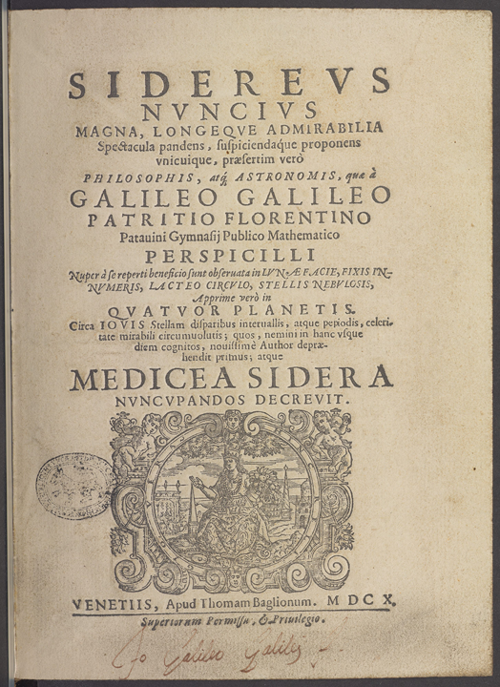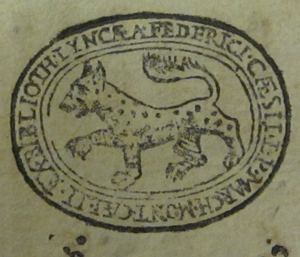GSU Faculty Member Uncovers Fake Book Sold By Corrupt Library Director

The forgery of primary documents is a great offense to research. If a fake item slips through inspection, it becomes historical fact and enters the canon that other research relies upon. So imagine if personnel at Georgia State University Library started secretly putting forged books into our rare book collection or were doctoring fakes to appear to be genuine originals! The research of Professor Nick Wilding in GSU’s Department of History seems to have uncovered just such illicit activity coming from an Italian book dealer.
With a research focus on Galileo Galilei, Wilding is currently writing a biography of Venetian natural philosopher, diplomat and libertine Gianfrancesco Sagredo. To study this subject, he received a Delmas Foundation Grant for research in Venice and the Rome Prize from the American Academy in Rome. Wilding is also producing a translation of Galileo’s Dialogue Concerning the Two Chief World Systems. He is adept in his field and his expertise paid off when studying a unique copy of Galileo’s Siderus Nuncius. Wilding argues that the book (valued at over $10 million) is a fake.
The book in question was purchased by New York rare bookseller Martayan Lan in 2005. Galileo’s Siderus Nuncius (Venice, 1610) is an important text that announces Galileo’s discoveries of mountains on the moon, satellite moons around Jupiter, and the millions of unseen stars in the Milky Way. This is the book that helped change science from a geocentric model to a heliocentric one. The Martayan Lan copy of the Siderus Nuncius was valued even more than other rare copies of the book for several reasons:
- It has unique hand drawn illustrations inside thought to be drawn by Galileo, rather than the etchings found on other copies.
- The title page bears an inscription, translated as “I, Galileo Galilei, made this.”
In 2007, German scholar Horst Bredekamp and a team of other researchers studied the Martayan Lan copy to determine its authenticity. After a variety of tests they concluded that it was genuine. Their study was published as the two volume collection, Galileo’s O.

In 2012 however, Wilding was asked to review the study of Bredekamp and his team. During this review he found several discrepancies in the Martayan Lan copy that indicated the book is a fake.
- The book bears a library stamp by the founder of the Accademia dei Lincei Federico Cesi. But the stamp in the Martayan Lan copy doesn’t match those in other books.
- The title page was different from genuine copies, but bore similarities to a 1964 facsimile and an unsold Sotheby’s auction copy.
- There was no record of the Siderus Nuncius in the original library this copy was thought to come from.
Furthering Wilding’s case, the Martayan Lan copy was purchased from Marino Massimo De Caro, who subsequently became the library director of the Girolamini Library in Naples. De Caro was arrested in May 2012 for selling rare books from his library’s collection as well as doctored copies of genuine books. In the early 2000s, De Caro sold Galileo materials to high-level collectors on the international market. When questioned about the theft of 2,700 books from the library, De Caro claimed he was selling the books to raise money for his library’s renovation.
Because of this evidence, Wilding believes both the Sotheby’s and Martyan Lan copies are forgeries made by skilled artisans, using photographs of at least three different Siderus Nuncius copies to make it seem authentic as a proof-copy with anomalies. While Bredekamp’s team conducts more tests on the book, Wilding is accumulating more evidence by working through the copy page-by-page.
Wilding said that in his research, library services at Georgia State like Interlibrary Loan, GIL Express and Desktop Article Delivery were “absolutely fantastic” and crucial to his work. Wilding uses these services frequently since GSU has limited access to 16th and 17th century Italian texts. Wilding says these library services level the playing field so researchers have access to digital research anytime and anywhere. While he’s in Italy doing primary research, he can still access Georgia State’s databases and get documents from Interlibrary Loan emailed to him. The digitization of primary texts is also important to Wilding, as it “democratizes access” to books with prices so high that not many institutional libraries can afford them.